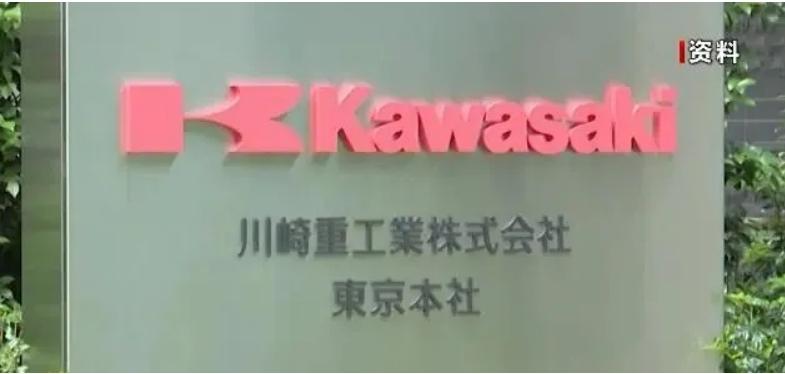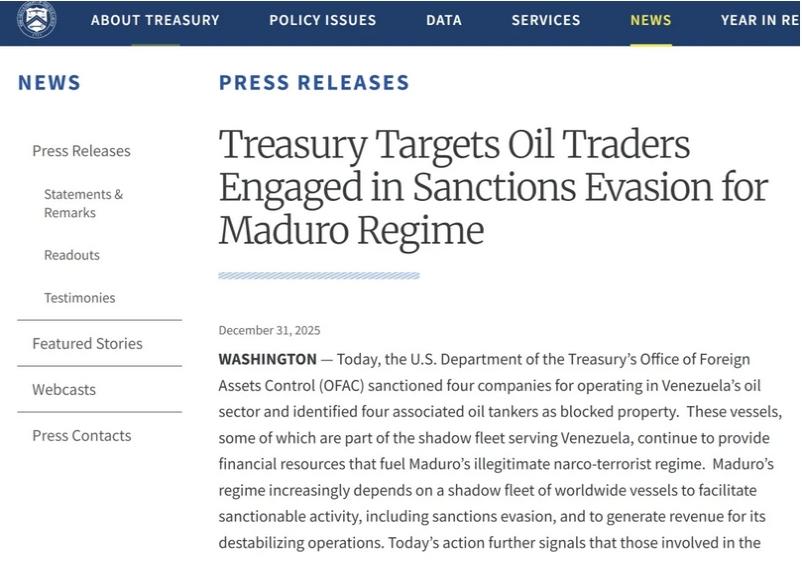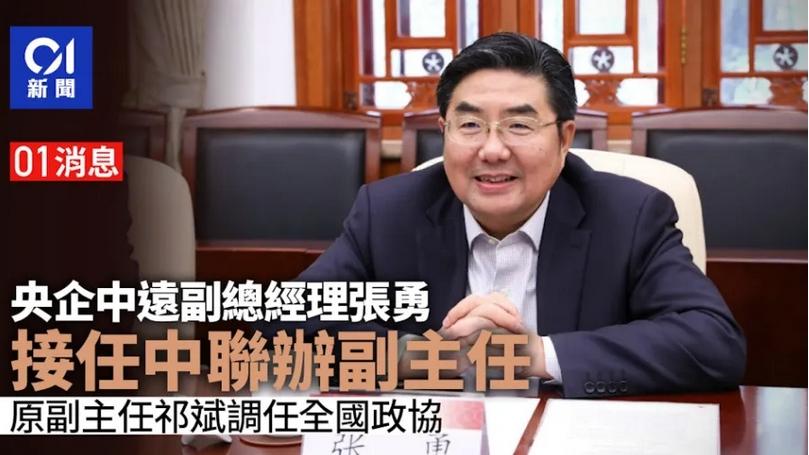【关键词】谈判、约束力、Pre-Contractual Negotiation
上周在一群里看到两家在讨论一个问题,A说他在和B谈一个TCT,同时也在和C谈一个VC。A明确告诉B,他同时和B及C在谈,哪家先clean了就跟哪家做。结果C先clean了,于是A就把船给了C去执行VC航次。但是,B说A违约,和B谈了那么只能和B做。此外,在执行完C的航次后,A在谈下个航次任务的时候,B去和A潜在的租家/货主说,要扣A的船,结果这个潜在的租家/货主听到B要扣船,吓得只好取消了和A的租约谈判,最终造成了A损失。
A和B直接的交流部分内容如下截图,内容很明白,A已经明确告诉B实际情况了,因此不存在欺骗B的问题。

那么A的这种做法是否如B说的构成违约呢?是否需要A为之承担责任呢?
现在通过对Walfordv Miles [1992]案的分析来说说与合同签订前的谈判相关的几个问题。
一、基本案情
在1985,由于身体受疾病影响, Miles先生(以下简称“被告”)决定出售他自己的公司及其营业场所。Patel先生和Khanderia先生谈判,是通过一家名为Statusguard的公司,其中Patel先生和Khanderia先生有30%的股份,但是最终这些谈判失败了。
在1986年底,Miles先生再次决定出售该公司及其房产业务,Patel先生提出了190万欧元的报价。同时,Martin Walford先生(以下简称“原告”)听说公司被挂牌出售,于是在1987年4月23日,原告与被告举行了一次会谈。虽然被告不知道任何有关摄影的加工业务,但他们认为他们找到了一个便宜的买卖。被告准备在交易完成之日起支付现金资源,公司的银行账户不少于100万英镑,12个月后的交易利润将不低于100万英镑,完成税前不得少于30万英镑。原告认为,按上诉时Naughton QC律师的话说,该公司及其营业场所的价值被严重低估。因此,原告他们非常热衷于以这个价格将其买下。
在1987年3月12日,在原告的办公室,主要的买卖条款双方已经基本同意。在3月16日,原告发了一份传真给被告的律师,其抬头非常明确清晰地带有“Subject to contract”字样。买家不是原告,但公司被其控制。在3月16日的信中,原告记载,被告曾给他保证说,只要他得到一个清楚的意图继续购买的意图不迟于星期三,3月25日下班,他不会接待任何第三方或考虑其他替代报价。被告的律师在3月17日回答说,他没有任何指示进行买卖,被告也没有给出所谓的保证。然而,这封信却被原告和被告在同一天之间的口头交流所取代。
3月18日,原告写信给被告律师,证实已经同意在电话交谈,这封信的倒数第二段清楚地阐明了第三方谈判达成的协议,该封信内容如下。
The last matter discussed between Mr Miles and merelated to our ability to make payment for the shares in the business and the property. He asked me to provide a comfort letter from our bankers confirming that they are, subject to contract, prepared to provide the finance of £2,000,000to enable Acquisition Corpn to effect the purchase. Mr Miles agreed that if such a letter were in your hands by close of business on Friday of this week he would terminate negotiations with any third party or consideration of any alternative with a view to concluding agreements with me and my brother and Acquisition Corpn and he further agreed that even if he received a satisfactory proposal from any third party before close of business of Friday night he would not deal with that third party and nor would he give further consideration to any alternative.
该封信确认银行会给原告的两兄弟提供贷款,使他们能够购买这家公司及其设施。
3月25日,被告的律师写信给原告承认这封信,并确认,根据合同,他的委托人同意以200万英镑的价格出售财产和股份。在同一天,被告的律师写信给Patel的律师,通知他们说他的委托人已将出售财产和公司股份的条款交给另一方,他正等着收到合同草案。他指出,一切仍然以最终的合同为依据,交易可能不会进行,但如果没有,他的客户将有兴趣继续讨论。
3月26日,原告的律师发出初步的调查和股份购买协议的草稿给被告的律师,被告的律师第二天就把这些文件送到被告先生那里。原告急着见被告,但那天,被告没有空。
在3月30日,被告律师写信给原告,告之原告,在仔细考虑后,他的客户已决定出售与审计相关的公司,并说他希望原告将毫无疑问会接受他的客户决定。但是原告并不接受,他们认为被告律师的信是对即将达成合同的毁约。同时,这家公司的股票,在Blackfriars道路的财产已经以200万欧元的价格卖给了Statusguard公司。该公司Patel先生和Khanderia先生在1985年曾试图买下。
被告在高等法院,并没有递交证据给Bates QC法官。被告的妻子告诉法院,她和她的丈夫在3月27日在公司花了一个下午来思考,最终决定不卖给原告或其公司。她解释说,他们担心他们和他们的工作人员是否会与原告相处得很好。如果他们没有这样做,他们可能会失去其员工,也无法产生30万英镑的利润。此外,他们担心她丈夫的健康可能在年内会好转,他将继续在企业工作,提供原告他们缺乏的专业知识。因此,他们决定自己还是继续与Patel先生做生意,如果他仍然有兴趣的话。在3月27日晚,有一通电话,Patel先生确认他仍然有兴趣,并同意涨10万欧元,以达到原告提供的报价。在Patel先生提供的证件里,说在25日收到被告律师的信件后他和被告就不再有联系,直到27日晚上的电话沟通。但是法庭并不相信Patel所说的,认为被告和Patel一直保持联系,尽管3月17日的口头协议在3月18日的信中有记录。
二、争议的主要焦点
原告依赖在购买公司和土地交易的谈判过程中,原告的口头,附属协议;这份口头附属协议包括两个方面,首先被告同意继续谈判并且不会撤销;其次,他们提供了条款中所要求的银行的信函。
他们的第5段索赔的声明如下,考虑到已经与原告达成协议,被告将终止与任何第三方谈判;及即使被告在1987年3月20日的交易结束前收到任何第三方满意的报价,被告也不会与第三方交易,或进一步考虑其他选择。
The [first respondent] onbehalf of himself and the [second respondent] would terminate negotiations with any Third Party or consideration of any alternative with a view to concludingan agreement with the [appellants] and further that even if he received a satisfactory proposal from any Third Party prior to the close of business on 20th March 1987, he would not deal with that Third Party or give further consideration to any alternative.
如果是这样,那么该协议是众所周知的锁定“lock-out”协议,提供给被告一个专属机会,试图与被告达成合同条款,但对于这样的机会却没有明确提供时间段。为了更好地理解后面的判决,修改为如下:
It was a term of the said collateral agreement necessarily to be implied to give business efficacy there to that, so long as they continued to desire to sell the said property and shares, the [first respondent] on behalf of himself and the [second respondent] wouldcontinue to negotiate in good faith with the [appellants].
因此该索赔的声明,声称,被告不仅仅锁定与第三方交易那些未指明的时间,也锁定了与被告处理的时间,也是未指明的时间。
该索赔的声明进一步声称,由于被告错误性的毁约,原告失去了完成交易和购买股票的机会,该股票和财产在实际市场中价值为300万欧元。因此,原告找被告索赔他原本同意购买的200万欧元与实际市场价值的价值差额;由于原告一直与第三方联系买卖事宜,被告还索赔由于原告的虚假陈述的损害赔偿;还有包括在谈判和合同文件的编制费用,700欧元。
三、一审和上诉法院的判决
在一审法庭上,被告的代表律师声称,第5段及修改过的所声称的协议,仅仅是个同意谈判的协议,但这协议并不能强制执行。法官没有处理原告和被告直接的这种冲突。他认为,因为有这个口头附属协议(collateral agreement),在星期五晚上,3月20日下班之前,被告必须终止与任何第三方或考虑任何替代谈判,即使被告收到了从一份令人满意的报价;但是被告违反了这种口头附属协议。法官因此命令被告必须赔偿原告损失;他接着判被告的所作所为在口头附属协议下构成了虚假陈述。
但是在上诉院,多数法官(Dillon 及Stocker勋爵)认为该声称的协议不过是一同意谈判的协议,基于此原因判所谓的协议无法执行。
On the grounds that the agreement all eged was no more than an agreement to negotiate and was therefore unenforceable.
持有反对意见的Bingham勋爵认为,此口头附属协议是可执行的,这可以解释为被告除了原告外,不应对任何人,不得接受任何替代方案或与他人达成协议。
四、贵族院终审判决
Ackner勋爵认为需要一个协议进行谈判的理由,仅仅是因为缺乏必要的确定性,这同样不适用于使用尽最大努力的协议。这种不确定性在即时案件中得到了证明,该条款必须在确定谈判的协议中加以暗示。然而,本着真诚进行谈判的义务的概念,在参与谈判时,当事人的敌对立场是令人反感的。每一个当事人在谈判中都有追求他(或她)自己的利益的权利,只要他避免作出虚假陈述。为了提高这一利益,他必须有权,如果他认为适当的话,威胁说要退出进一步谈判,或实际上撤回,希望对方可以通过给他提供更好的条件来重开谈判,然后给予一份更好的合同条款。但这仍然留下了一个至关重要的问题:供应商如何知道他有权退出进一步谈判?法院应当如何判断这样一个协议?在Ackner勋爵看来,真诚谈判的义务在实践中是行不通的,因为它与谈判者的立场天生不一致,存在不确定性。当谈判存在时,任何一方在任何时候以任何理由都有权退出谈判。
The reason why an agreement to negotiate, like anagreement to agree, is unenforceable, is simply because it lacks the necessary certainty. The same does not apply to an agreement to use best endeavours. This uncertainty is demonstrated in the instant case by the provision which it issaid has to be implied in the agreement for the determination of the negotiations. How can a court be expected to decide whether, subjectively, aproper reason existed for the termination of negotiations? The answer suggesteddepends upon whether the negotiations have been determined “in good faith”.However the concept of a duty to carry on negotiations in good faith is inherently repugnant to the adversarial position of the parties when involvedin negotiations. Each party to the negotiations is entitled to pursue his(or her) own interest, so long as he avoids making misrepresentations. To advancethat interest he must be entitled, if he thinks it appropriate, to threaten to withdraw from further negotiations or to withdraw in fact, in the hope that the opposite party may seek to reopen the negotiations by offering him improvedterms. Counsel for the plaintiff accepts that the agreement upon which he relies does not contain a duty to complete the negotiations. But that still leaves the vital question-how is a vendor ever to know that he is entitled to withdraw from further negotiations? How is a the court to police such an “agreement”? A duty to negotiate in good faith is as unworkable in practice as it is inherently inconsistent with the position of a negotiating party. It is herethat the uncertainty lies. In my judgment, while negotiations are in existence either party is entitled to withdraw from those negotiations, at any time and for any reason.There can be thus no obligation to continue tonegotiate until there is a “proper reason” to withdraw. Accordingly a bare agreement to negotiate has no legal content.
该段陈词中,尤其是“In my judgment, while negotiations are in existence either party is entitled to withdraw from those negotiations, at any time and for any reason”,已经非常明确指出,当还在谈判的时候,任何一方在任何时候以任何理由都有权退出谈判。Ackner勋爵的这一观点也被其他法官及贵族院所接受。这是个对原则极不妥协的陈述,使得谈判的协议在实际中变得毫无用处;如果损害赔偿是根据另一方的期望或履行利益而进行的,作为任何违反合同签订前协议的损害赔偿将变得名存实亡。
关于锁定协议,Ackner勋爵不接受原告律师的观点,修改第5段的默示条款,除声明的根本原因,没有对B的积极义务与锁定协议谈判将是徒劳的。在第5段中索赔的声明,其所谓的协议包含一个基本有效的锁定协议的本质特征,它
不指定多久,到最后。虽然提出讨论的每一点都已得到同意,然而这提交忽视所在3月17日电话中所同意的,依据最终合同。尽管有关这些事项,双方仍在谈判中,此外,还有许多其他事项有待考虑和商定。鉴于所谓的锁定协议太缺乏必要的确定性,因此无法执行。最终,Ackner勋爵驳回原告上诉。Goff of Chieveley勋爵, Jauncey of Tullichettle勋爵及Browne-Wilkinson勋爵均认同Ackner勋爵观点,原告上诉被驳回。
Before considering the basis of BinghamLJʹs judgment, I believe it is helpful to make these observations about a so-called ʹlock-outʹ agreement. There is clearly no reason in English contractlaw why A, for good consideration, should not achieve an enforceable agreementwhereby B agrees for a specified period of time not to negotiate with anyoneexcept A in relation to the sale of his property. There are often goodcommercial reasons why A should desire to obtain such an agreement from B. Bʹs property which A contemplates purchasing may be such as to require the expenditure of not inconsiderable time and money before A is in a position to assess what he is prepared to offer for its purchase or whether he wishes to make any offer at all. A may well consider that he is not prepared to run the risk of expending such time and money unless there is a worthwhile prospect,should he desire to make an offer to purchase, of B, not only then still owning the property, but of being prepared to consider his offer. A may wish to guard against the risk that, while he is investigating the wisdom of offering to buy Bʹs property, B may have already disposed of it or, alternatively, may be so advanced in negotiations with a third party as to be unwilling or for allpractical purposes unable to negotiate with A. But I stress that this is an egative agreement—B, by agreeing not to negotiate for this fixed period with a third party, locks himself out of such negotiations. He has in no legal sense locked himself into negotiations with A. What A has achieved is an exclusive opportunity, for a fixed period, to try and come to terms with B, an opportunity for which he has, unless he makes his agreement under seal, to give good consideration. I therefore cannot accept Mr Naughtonʹs proposition, which was the essential reason for his amending para 5 ofthe statement of claim by the addition of the implied term, that without a positive obligation on B to negotiate with A the lock-out agreement would be futile.
The agreement alleged in para 5 of the unamended statement of claim contains the essential characteristics of a basic valid lock-out agreement, save one. It does not specify for how long it is to last. Bingham LJ sought to cure this deficiency by holding that the obligation upon the respondents not to deal with other parties should continue to bind them ʹfor such time as isreasonable, in all the circumstancesʹ. He said: ʹ… the time would end once the parties, acting in good faith, had found themselves unable to come to mutually acceptable terms … The defendants could not … bring the reasonable time to an end by procuring a bogus impasse, since that would involve a breach of the duty of reasonable good faith which parties such as these must, I think, be taken too we to each other.ʹ
However, as Bingham LJ recognised, such a duty, if it existed, would indirectly impose upon the respondents a duty to negotiate in good faith. Such a duty, for the reasons which I have given above,cannot be imposed. That it should have been thought necessary to assert such a duty helps to explain the reason behind the amendment to para 5 and the insistence of Mr Naughton that without the implied term the agreement, as originally pleaded, was unworkable—unworkable because there was no way of determining for how long the respondents were locked out from negotiating with any third party.
Thus, even if, despite the way in which the Walfordʹs case was pleaded and argued, the severance favoured by Bingham LJ was permissible, the resultant agreement suffered from the same defect (although for different reasons) as the agreement contended for in the amended statement of claim, namely that it too lacked the necessary certainty, and was thus unenforceable. I would accordingly dismiss this appeal with costs.
LORD GOFF OF CHIEVELEY. My Lords, I have had the advantage of reading in draft the speech of my learned and noble friend Lord Ackner. I agree with it and for the reasons he gives I, too, would dismiss this appeal with costs.
LORD JAUNCEY OF TULLICHETTLE. My Lords, Ihave had the advantage of reading in draft the speech of my learned and noblefriend Lord Ackner. I agree with it and for the reasons he gives I, too, woulddismiss this appeal with costs.
LORD BROWNE-WILKINSON. My Lords, I too agree with the speech of my noble and learned friend Lord Ackner and, for the reasons which he gives, would dismiss this appeal.
在本案中,原告的律师发的传真,带有显著的标题“Subject to Contract”,以合同为准。很显然其意图明显,往来信件及电话中的口头协议等等都将只是个参考,一切都应该以最终的合同为准。
这个合同签订前的往来电邮,在The “Silver Constellation”案中,David Steel 法官认为,之前的电邮非常明确的表明船东的态度及立场,不接受Rightship Approval作为签订合同的条件之一。
关于这个合同前的谈判,也可参Chartbrook Ltd v PersimmonHomes Ltd案,Lawrence Collins勋爵在第111及112段的判决书中说到的如下,基于以下几个理由,他认为合同前的谈判不可接受的。
(1) 在纠纷解决增加了不确定性和不可预测性;
(2) 对第三方权利的不利影响;
(3)证据的使用将是无益的;
(4) 对客观方法的颠覆.
[111] Lord Nicholls suggested ((2005) 121 LQR at 587-588) that the policy reasons put forward for the proposition that pre-contract negotiations were in admissible were as follows:
(1) increased uncertainty and unpredictability in dispute resolution;
(2)adverse effect on third party rights;
(3) the use of the evidence would be unhelpful (Lord Wilberforce's reason);
(4)subversion of the objective approach.
Lord Nicholls accepted that these were important practical considerations, but that they were not conclusive. To that I would add a further one, which is that without such a rule sophisticated and knowledge able negotiators would be tempted to lay a paper trail of self-servingdocuments.
[112] The judge in this case was particularly impressed by the second of Lord Nicholls' reasons, the effect on third parties. But, as Lord Nicholls recognised (at 588), the same objection would apply (although perhaps with less force) to the admissibility of other background material, which might be equally unavailable to third parties. The Law Commission, Law of Contract: The Parol Evidence Rule (Law Com No 154, 1986), when concluding that the parol evidence rule did not have the effect of excluding evidence which ought to be admitted if justice was to be done between the parties, did not consider that assignees would be prejudiced: para 2.43. It is also significant that the effect on assignees does not prevent (as I have indicated) the admissibility of pre-contract negotiations for the purposes of interpretation in the practice of the world's greatest capitalist nation, the
总结:
英国的法律不像德国或意大利的法律,与法国的法律类似,在合同签订之前的谈判并不存在特殊的规则,比如说有缔约过失责任,如果合同没有结果的话。也就是说,如果合同没有签订,之前的陈述和谈判对双方都没有约束力,双方都无需承担责任;除非存在公平救济或侵权责任。很显然,在A已经明确告之B实际情况下,A无需负责。
在《Liability for Contractual Negotiations in English Law》一文中说道:
Nospecial rule of pre-contractual liability (culpa in contrahendo) exists in English law when no Contract results.
在英国法下,如果合同没有结果,并没有特殊的规则针对合同前的责任(缔约过失责任)。
此外也可参《ThePrinciples Of European Contract Law》一书, Section 3 - Liability for negotiations :Article 2:301 (ex art. 5.301) -Negotiations Contrary to Good Faith:
(1)A partyis free to negotiate and is not liable for failure to reach an agreement.
在该书中,关于违背诚信的谈判中第一点就是说:当事人可以自由协商,不因未能达成协议而承担责任。
A最终选择去执行C的VC航次,未能和B达成最终协议,依据以上两书的说法可以得出结论,A无需承担责任。
先撇开A已经明确告之B,他也在和C谈合同的这一情况;那么A在和B谈判的过程中,是否有权利选择中途退出谈判呢?关于这个问题,可以参《Contract Formation / Law and Practice》一书中,11.50段中提到:
Moreover, It was not possible to apply such a duty because parties have a legal right to withdraw from negotiations whenever they choose.
由于当事人双方有选择退出谈判的法定权利,因此不可能适用这个责任。
及在前头分析的Walford v Miles案中,Ackner勋爵所说的,当还在谈判的时候,任何一方在任何时候以任何理由都有权退出谈判。
In my judgment, while negotiations are in existence either party is entitled to withdraw from those negotiations, at any time and for any reason
因此A在和B谈判的时候,最终选择去和C成交,该行为并不构成B所声称的违约。在B和A合同签订之前,A有权在任何时候以任何理由退出谈判,更何况A也没有和B达成所谓的锁定协议,保证在某某日之前A不会和任何别的人谈判或接受任何第三方的,即使更有利的报价。
接着再来看看这个诚信(good faith)的含义,可以参《UniformCommercial Code》如下解释:
(g) "Good faith" meanshonesty in fact in the conduct or transaction concerned.
"Goodfaith", except as otherwise provided in article 5, means honesty in factand the observance of reasonable commercial standards of fair dealing.
也就是说在有关的实际行为或交易过程中,必须遵守诚实守信与公平交易的商业准则。A在事前已经明确告诉B,他在和B谈合同的时候,也同时在和C谈,因此A并未违反诚信原则。虽然诚信原则只是在商业贸易或民法中所要求的,在英国普通法下对此并未做过多要求。
在1766,伟大的改革家Mansfield勋爵曾经试图在英国法律中引入诚信原则,但是他未能做到这一点,事实上,他在英国合同法的改革中受到了其他一些人的启发。英国契约法的经典理论被认为是促进实用主义、可预测性和确定性的理论。可参《Liability for Contractual Negotiations inEnglish Law》:
Writing in 1766, the great reformer judge Lord Mansfield sought to import good faith into English law as
“(…) the governing principle... applicable to all contractsand dealings (…)”.
But he failed to achieve this, as, indeed, several others of his inspired reforms of English Contract law. The classical theory of English Contract law was perceived as promoting pragmatism, predictability and certainty.
当然,当事人双方在谈判过程中,如果一方被另一方当事人或另一方以该合同的名义,所作的虚假陈述或欺诈行为所诱导而签订该合同,那么受诱导的无辜的一方,有权要求因此虚假陈述所造成的损失。对于这方面的也可以参考《Contractual Remedies Act 1979》中的如下说法:
Damages for misrepresentation
(1) If a party to a contract has been induced to enter into it by a misrepresentation, whether innocent or fraudulent, made to him byor on behalf of another party to that contract—
(a) He shall be entitled to damages from that other party in the same manner and to the same extent as if the representation were aterm of the contract that has been broken; and
(b) He shall not, in the case of a fraudulent misrepresentation, or of an innocent misrepresentation made negligently, been titled to damages from that other party for deceit or negligence in respectof that misrepresentation.
此外,普通法中的过失侵权也应承担赔偿责任。这种责任可能出现尤其是在谈判过程中,对方当事人的合理信赖。如果一方在谈判过程中提供机密信息,另一方有义务不披露该信息或为其目的使用该信息,不论合同是否随后订立。违反本义务的补救办法包括赔偿无辜方所遭受得损失和恢复对方所能获得的利益。可参考《ThePrinciples of European Contract Law》Article 2:302:
If confidential information is given by one party in the course of negotiations,the other party is under a duty not to disclose that information or use it for its own purposes whether or not a contract is subsequently concluded. There medy for breach of this duty may include compensation for loss suffered and restitution of the benefit received by the other party.
虽然有无数众多的先例判合同前的谈判不可被接受,但是这和谈判本身并没有关系。当事人可以自由协商,不因未能达成协议而承担责任;但是如果一方当事人协商或谈判中断了违背诚信和公平交易的给对方造成的损失则需负赔偿责任。尤其是违反诚信和公平交易,一方当事人进入或继续无意与对方当事人达成合意的谈判。如果在谈判过程一方说尽最大努力do endeavour,这和普通的sub to又有不一样的地方。总之,在谈判过程中,最好还是遵循诚实守信的基本原则,避免给自己带来不确定的影响。
参考资料:
1、《The Principles of European Contract Law》
2、《Liability forContractual Negotiations in English Law》
3、《Contractual RemediesAct1979》
海运圈聚焦专栏作者 Alex (微信公众号航运佬)

 2017-08-07
2017-08-07 2216
2216 














